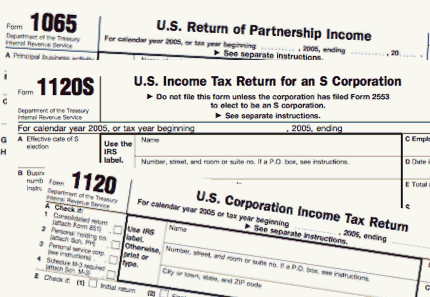How the 20% Qualified Business Income Deduction Affects Veterinary Practices
Nov. 19, 2018

With passage of the Tax Cuts and Jobs Act (TCJA) in early 2018, veterinary practice owners are hopeful of reduced tax burden, enhanced by the prospect of a 20% deduction on “Qualified Business Income” (QBI) flowing through from Sub S Corporations, LLCs, Partnerships and Sole Proprietorships.
And everyone is cautious, because there are complications to understanding QBI and eligibility for the deduction (QBID). With the limitations discussed further below, many practice owners may be phased-out of this glorified tax deduction.
[This article first appeared on the Veterinary Practice Made Perfect blog, published by Marsha L Heinke, DVM, CPA, EA, CVPM.]
So what is the possible deduction by an individual with an equity position in a veterinary pass-through entity (PTE)?
1. If MFJ taxable income (Form 1040, Line 43) is less than $315,000 (other filers, $157,500), then you are eligible for the QBID.
2. The deduction can’t exceed 20% of personal taxable income over any net capital gain.
3. The QBID for veterinary practice income may phase out, when a taxpayer’s personal taxable income is between $315,000 and $415,000 (MFJ) or between $157,500 and $207,500 (filers other than MFJ).
4. For other types of QBI, the related pass-through deduction is further limited by certain calculations of the entity’s W-2 wages and qualified property basis.
What is QBI (Qualified Business Income)?
- Pass-Through Entity net amount of income, gain, deduction and loss
- Entity business conducted in U.S.
- May (this is currently debated and uncertain) include rental property income.
- Excludes shareholder’s reasonable compensation (W-2 wages) or partner’s guaranteed payments.
- Excludes income from Specified Service Fields when personal taxable income exceeds phase out limits (see above). Specified Service Fields includes professional activities such as “HEALTH”, where “the principal asset is the reputation of the employee or owner.” According to August 2, 2018 IRS proposed regulations, the performance of services in the field of health includes medical service provision by veterinarians.
What are planning considerations?
One reasonable 2018 planning issue is titrating how much depreciation to take on assets placed in service during the year, since bonus depreciation and the Section 179 election for immediate write-off are very generous. These deductions will reduce QBI and taxpayer taxable income. The interplay with phase out limits for veterinary families will make titration tricky, when trying to find the best tax outcome in a particular year. Additionally, deciding how much depreciation to take, affects taxable income in future years, so the planning becomes a multiyear effort.
Secondly, veterinary practice revenue is a complex mix of personal service income and retailing via product sales and pharmacy sales. Additionally boarding and grooming activities, as well as others conducted through the veterinary business entity, could possibly fall outside of the definition of specified service trade or business (SSTB). So is it possible that some allocable portion of the practice’s net income would not subject the owner(s) to QBID limitation?
The IRS’s proposed regulations appear to support the premise that boarding and grooming services, and sales of pharmaceuticals are not services in the field of health. But unfortunately, the regulations may prevent veterinary businesses from dividing these excluded revenues from the greater pool of veterinary health care. Suppose a practice was to separate these services into a different legal entity; the IRS currently takes the position that if there is 50% or more common ownership of the fragmented businesses, then all is collapsed back into the categorization of an SSBT (thus its owners not eligible for the tax deduction if they are over the taxable income threshold).
Despite this obstacle, cost accounting will take on new and important precedence in mixed revenue practices, especially as some will choose to test the teeth of the confusing and complex law. The final definition of a “specified service business” under the new Section 199A is going to be critical. The IRS has taken public comments since the temporary regs were published in August. It is anyone’s guess as to when the final regs will be published in the Federal Register.
We will be watching this issue carefully. Potentially, practice owners will still consider spinning off parts of the veterinary practice that are not related to professional veterinary services, into new legal entities that are eligible for the QBID, if the structure can be made in a way that sidesteps the current apparent obstacles.
Keep in mind, this and many other ambiguous sections of the complex, nearly 1,100 page tax law must be clarified through final regulatory guidance, and additional Congressional actions to fix vagaries and mistakes written into the new law. As of this posting, it appears Congress does not have the appetite to make those corrections.
=======
[This article first appeared on the Veterinary Practice Made Perfect blog, published by Marsha L Heinke, DVM, CPA, EA, CVPM. Marsha is a doctor of veterinary medicine, an Enrolled Agent, a Certified Public Accountant and a Certified Veterinary Practice Manager.]
